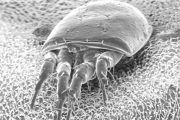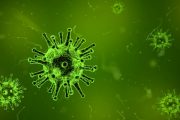Having pets is fantastic. They amuse you, provide companionship, and, in certain cases, even protect you. If they are allowed inside, they make excellent cuddling pals. But there is a price to be paid for all that sweetness. One of these disadvantages is odor. You know that cat litter odor? Or your dog after a park walk? That is the last thing you want to experience after a long day at work.
The second possibility is allergies. Even if you aren’t allergic to pet hair or feathers, they can irritate your sinuses. When birds rub their feathers together, a tiny amount of dust is released that can cause severe allergic reactions. It is because our body is supposed to react with exotic particles, in this case, pet dander.
So, an air purifier is the perfect solution. In fact, we made a very helpful listing of the best air purifiers for pets, which are designed to deal with pet problems specifically. Also, we have already answered another big question: Do air purifiers get rid of pet hair and pet dander?
So are air purifiers safe for pets, you may ask. Let’s find out in this article.
Note: If you need answers to common questions about air purifiers, please read our air purifier FAQs.
Related posts
Are air purifiers safe for pets
Yes, an air purifier is safe for pets. An air purifier using only mechanical filters (like a HEPA filter) will safely remove pet hair, dander, and odors from your indoor air. Some specific air purifiers are designed to be sturdy enough so your pets can’t easily shove it down, which is important because floor-standing air purifiers have the potential to fall and injure your pets. We recommend that you consider your pet when selecting an air purifier and place it in a safe location for the safety of everyone in your family. Place the air purifier somewhere it won’t be accessed or knocked over by your pet.
However, before you rush out and buy the first air purifier you see, you should be aware of a few factors that should affect your decision. Buying an ozone-generator purifier is a big no-no. This can be fatal to your pet parakeet, parrot, or flying squirrel. In fact, the FDA has set a limit of 50 parts per billion of ozone from electronic air purifiers. If an air purifier doesn’t have the certification of CARB (the California Air Resources Board), it isn’t safe to use for not only your pets but also their owners.
So, if you have a feathered friend, you should probably avoid anything with the words “ozone” or “ionize,” or at least talk to your vet before spending your money.
List of the best air purifiers
- 1, Best Air Purifier (Air Purifier Ranking List)
- 2, Best Air Purifiers for Allergies
- 3, Best Air Purifiers for Bedroom
- 4, Best Air Purifiers for Baby
- 5, Best Air Purifiers for Smoke
- 6, Best Air Purifiers for Dust
- 7, Best Air Purifiers for Mold
- 8, Best Large Room Air Purifiers
- 9, Best Air Purifiers for Pets
- 10, Best Air Purifiers for Office
The sounds of an air purifier may be distracting or disturbing to some pets (most notably cats). The noise level of air purifiers can range from a low level of 40 dB (similar to a home computer) to a loud and uncomfortable 70 dB (the sound of a vacuum cleaner operated at full strength).
Air purifiers are actually necessary for your pets
The majority of air purifiers on the market are sealed machines that pull in and filter outdoor air. Passing air through a high-efficiency particulate air (HEPA) filter, activated carbon, or an electrostatic filter purifies it. After being cleansed, the purified air is released back into the atmosphere. Air purifiers are intended for use in homes with children, and their internal mechanics should be protected from prying paws and wagging tails. Even small pets, such as rodents, should not be able to go inside air purifiers.
A 2008 study published in Brain and Cognition found that the high levels of pollution in Mexico City had a negative impact on the brains of dogs. In the study, 57% of dogs exposed to higher levels of pollution had frontal brain lesions and neuroinflammation. In another study, which was published in the journal Toxicologic Pathology, DNA damage was found in the tissues of dogs’ noses and brains that had been exposed to air pollution. Inflammation of the respiratory tract and neurological damage were also found.
In a more recent study involving canines and felines published in the journal Veterinary Internal Medicine, researchers discovered that cats with respiratory diseases were more likely to live in households with higher levels of indoor air pollution, defined as particles of 2.5 m or less. Interestingly, they discovered that dogs with respiratory illnesses were more frequently exposed to incense smoking than the study’s control group of dogs.
Air purifiers may purify the air and indoor environment, making it safer for you and your pet to breathe. Air purifiers can lessen the impact of long-term exposure to pollutants, which can contribute to the development of significant health disorders in addition to lowering short-term irritation.
RATING BREATHE QUALITY
-
Average ratings for this post



